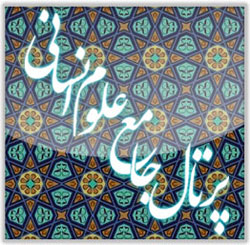Committed Literature and Its Impact on Culture from the Perspective of Sartre and Camus
Keywords:
Sartre, Camus, committed literature, culture, commitment.Abstract
One of the significant and controversial topics in the field of literature is the issue of committed literature and its role in the elevation of a society’s culture. In this regard, three prevailing perspectives can be identified: (1) The writer is obligated and committed to creating a work that conveys sublime and constructive meanings; (2) The writer is in no way obliged to serve society; (3) The writer personally chooses and may at times engage in committed literature and at other times produce literature with the aim of entertaining the public. According to Sartre and Camus, writers are duty-bound to strive for the reform of their societies. They both believed in the value of committed literature and held that such literature is constructive and capable of improving the human condition, thereby becoming a cultural force. A committed writer is a free individual. Moreover, freedom originates from a society’s culture. Therefore, freedom is a disposition that must be infused into a society through its culture. The present article seeks to examine the impact of committed literature on the culture of a society.
Downloads
References
1. Mearson G. A Descriptive Culture of Existentialism: One Hundred and One Key Concepts: Pilah; 2022.
2. Rees W. The Culture of Philosophy: Research Institute for Wisdom and Philosophy of Iran; 2021.
3. Sartre J-P. Existentialism and Humanism: Niloufar; 2010.
4. Sartre J-P. What is Literature?: Niloufar Publications; 2009.
5. Mardak E. Sartre's Romantic Rationalism: Rismane Publishing; 2015.
6. Sartre J-P. In Defense of Intellectuals: Niloufar; 2012.
7. Mostafavi S-a-M. Phenomenology of Art and Literature: Husserl, Heidegger, Sartre: Kargadan; 2023.
8. Sartre J-P. On Performance: Niloufar; 2008.
9. Sartre J-P. The Word: Gallimard; 1964.
10. Camus A. The Rebel: Porsesh; 2007.
11. Camus A. Resistance, Rebellion, and Death: Essays2012.
12. Camus A. The Myth of Sisyphus: Penguin Books; 1979.
13. Camus A. The Myth of Sisyphus: And Other Essays: Vintage; 2012.
14. Camus A. The Myth of Sisyphus: Niloufar; 2022.
15. Camus A. Reflections on the Guillotine and the Gallows: Niloufar; 2022.
16. Camus A. In Defense of Understanding: Cheshmeh; 2022.
17. Camus A. Commitment?: Ashiyan; 2018.
18. Camus A. Carnets 1935-1942: Hamish Hamilton; 1963.
19. Camus A. The Commitment of Writers: Niloufar; 2017.
20. Camus A. Notebooks 1951-1959: Ivan R. Dee Publisher; 2008.
21. Camus A. Lyrical and Critical Essays: Vintage; 2012.
22. Camus A. Camus's Commitment: Agah; 1983.
Downloads
Published
Submitted
Revised
Accepted
Issue
Section
License
Copyright (c) 2025 Masoud Reza Youhanaei (Author); Ali Moradkhani; Seyyed Saeed Lavasani, Shamsalmolok Mostafavi (Author)

This work is licensed under a Creative Commons Attribution-NonCommercial 4.0 International License.









